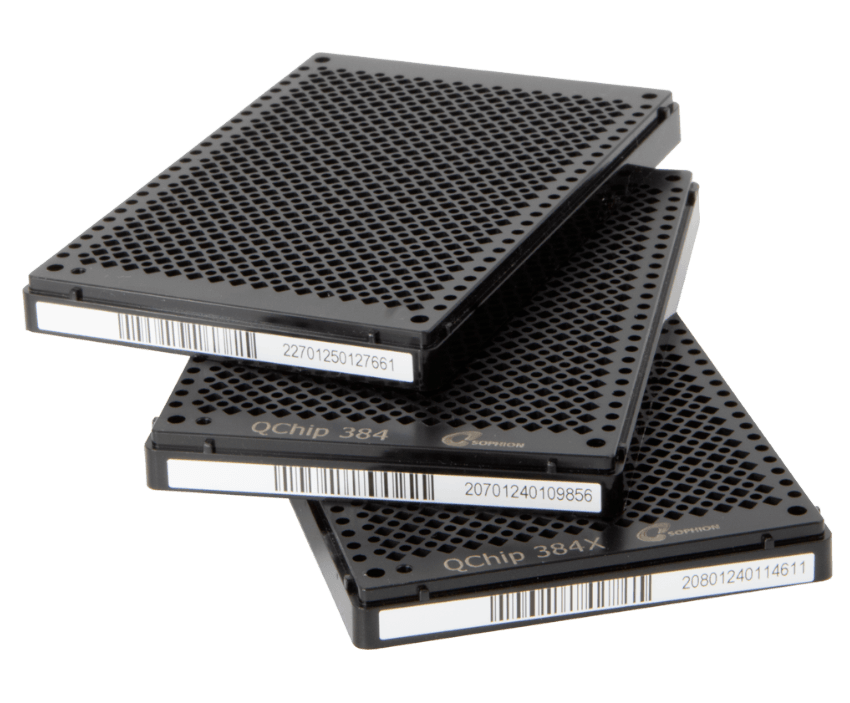QChips with integrated electrodes for Qube 384
QChips are uniquely designed for use with Qube 384. Their integrated flow channels and maintenance-free integrated electrodes create an uncompromised test environment. This ensures consistent quality recordings time after time on the QChip, which is designed for organelle and small cell patch clamping.
With QChips, cells seal tightly onto planar surfaces performing true gigaseal, and liquids can be handled efficiently in 384-format microfluidic channels. Thereby, ensuring consistent and high-quality data recordings.
QChips offer:
- Microflow-channel based to ensure 100% liquid exchange
- 384 integrated electrode pairs eliminate the risk of electrode drift and eliminate the need for electrode maintenance (re-chloridization)
- Capable of long (> 1 hour) experiments with no electrode drift
- Single- and multi-hole recordings
- Current clamp recordings, as well as voltage- and ligand-gated
- Customized QChips ideal for e.g., organelle and red blood cell patch clamp
Choose your QChip depending on your needs:
- QChip 384 – single-hole per measurement site
- QChip 384X – 10-hole per measurement site
- QChip 384D – Varying number of holes per measurement site
- QChip 384C – Custom number of holes and hole sizes per measurement site
The QChip is ideal for compound characterization and primary screening of any ion channel, both ligand-gated and voltage-gated
QChips are designed with microfluidic flow channels that deliver compounds and buffers to the intra- and extracellular part of the cell. This enables a series of liquid additions to be applied sequentially to the same cell, thus increasing throughput, and reducing cost per data point.
The microflow channel technology also means that compound trays are prepared in the correct concentrations and no dilution of compounds takes place (liquid displacement method). This has the advantage that no ‘overshoot’ concentrations will happen as can be seen using the open well technology (liquid dilution method). Using the dilution method an excess concentration of compounds is added to the wells since the compound will be diluted in the liquid already in the well.
QChips are available in both single- and multi-hole versions. The customized QChips have a reduced hole-size diameter, which is ideal for applications such as organelle and small cell patch clamp assays.





